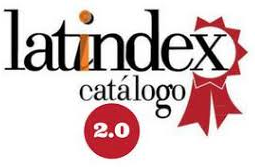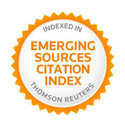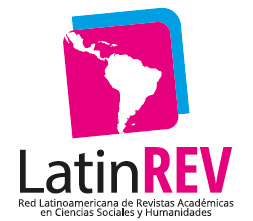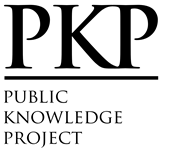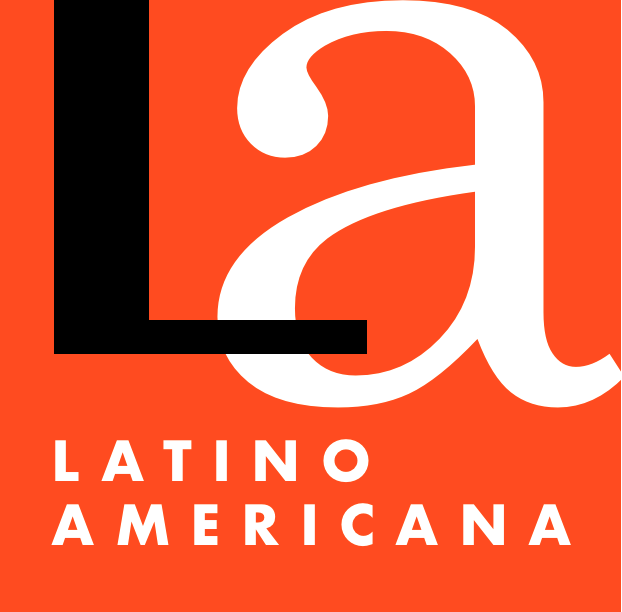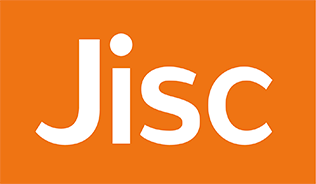Regulation of the terms of use of video on demand services in Argentina: the cases of Netflix and Max
Abstract
The article analyses the intervention of the Dirección Provincial de Defensa de los Derechos de las y los Consumidores y Usuarios of the Province of Buenos Aires against the video-on-demand streaming companies Netflix and Max for including abusive clauses in their terms of use. Using a case study approach, the paper reflects on the weaknesses of corporate self-regulation and the importance of state regulation. This official body, part of a subnational administration in Argentina, intervened ex officio to review adhesion contracts and identified several clauses that violated consumer rights. The companies limited their liability for service failures, refused to offer guarantees, denied any form of refund, restricted the user's options to unsubscribe, reserved the right to cancel contracts without cause, retained customer data after the commercial relationship had ended, and, when conflict was inevitable, forced customers to waive any form of collective action, imposed arbitration agreements, and established jurisdiction in foreign courts to resolve disputes. As a result, the provincial regulatory authority charged the two multinational companies between August and October 2022, achieving modifications to the observed clauses to bring them into compliance with national legislation, applicable throughout the country.
Downloads
References
Albornoz L.A. y Krakowiak, F. (2023). Netflix's first decade of presence in Latin America. En Bouquillion P., Ithurbide, C. y Mattelart T. (eds.), Digital platforms in the Global South: Shaping a critical approach. Routledge (Routledge Advances in Internationalizing Media Studies Series).
Baladron, M. y Rivero, E. A. (2019). Video-on-demand services in Latin America: Trends and challenges towards access, concentration and regulation, Journal of Digital Media & Policy, 10(1), 109–26.
Chevalier Naranjo S. (2023). “¿Cuáles son los principales rivales de Netflix en América Latina?”, Statista, 1 de marzo. https://es.statista.com/grafico/29404/servicios-de-streaming-con-mas-suscriptores-en-america-latina/.
Congreso de la Nación Argentina (1993). Ley 24.240 de Defensa del Consumidor. https://servicios.infoleg.gob.ar/infolegInternet/verNorma.do?id=638.
De Marchi L. y Martins Ladeira, J. (2019). Cultural Diversity and regulation in Brazil. The debate about the on-demand audiovisual market. En Albornoz L.A. y García Leiva M.T. (eds.), Audiovisual Industrial and Diversity: Economic and Policies in the Digital Era. Routledge.
DPDDCYU (Dirección Provincial de Defensa de los Derechos de las y los Consumidores y Usuarios) (2022a). Imputación de oficio a Netflix Servicios de Transmisión Argentina S.R.L., EX. 2022-26772664-GDEBA-DPDDCYUMPCEITGP, Gobierno de la Provincia de Buenos Aires.
DPDDCYU (Dirección Provincial de Defensa de los Derechos de las y los Consumidores y Usuarios) (2022b). Imputación de oficio a HBO Ole International Marketing LTD Sucursal Argentina, Ex. 2022-33855213-GDEBA-DPDDCYUMPCEITGP, Gobierno de la Provincia de Buenos Aires.
DPDDCYU (Dirección Provincial de Defensa de los Derechos de las y los Consumidores y Usuarios) [@consumidorpba] (18 de abril de 2024). La empresa Max (ex HBO Max) acató la medida impuesta por la Provincia y retiró de sus contratos las cláusulas abusivas [Fotografía] Instagram. https://www.instagram.com/p/C55-OaOrjSB/?igsh=MWgzMTJpbWNteTl4cw%3D%3D.
Fiesler, C., Lampe, C., y Bruckman, A. S. (2016). Reality and perception of copyright terms of service for online content creation. Proceedings of the 19th ACM Conference on Computer-Supported Cooperative Work & Social Computing, ACM. 1450-1461. https://cmci.colorado.edu/~cafi5706/CSCW2016_Fiesler.pdf.
García Leiva, M. T., y Albornoz, L. A. (2021). VOD service providers and regulation in the European Union: An audiovisual diversity approach. International Journal of Cultural Policy, 27(3), 267–281. https://10.1080/10286632.2020.1769614.
Gómez, R. y Muñoz Larroa, A. (2023). Netflix in Mexico: An example of the tech giant’s transnational business strategies, Television & New Media, 24(1), 88–105.
Goodman, B. (1999). Honey, I shrink-wrapped the consumer: The shrink-wrap agreement as an adhesion contract. Cardozo Law Review, 21, 319–360.
Ghosh S. (2015). Against contractual authoritarianism, Southwestern Law Review. Vol 44 N° 2. pp. 239-250. https://www.swlaw.edu/sites/default/files/2017-04/4%20Against%20Contractual%20Authoritarianism.pdf
HBO Max (2022). “Términos de uso de HBO Max”, actualización de abril de 2022. https://www.hbomax.com/terms-of-use/es-latam.
Jensen, C., Potts, C. (2004). Privacy policies as decision-making tools: a usability evaluation of online privacy notices. Proceedings of CHI’04. Vienna, Austria. 471–478. https://www.researchgate.net/publication/221515790_Privacy_policies_as_decision-making_tools_An_evaluation_of_online_privacy_notices.
Jensen, C., Potts, C., y Jensen, C. (2005). Privacy practices of Internet users: Self-reports versus observed behavior. International Journal of Human-Computer Studies, 63(1), 203-227. https://doi.org/10.1016/j.ijhcs.2005.04.019.
Kim, N. S. (2014). The Wrap Contract Morass. Southwestern University Law Review, 44(2), 309-325. https://ssrn.com/abstract=2611815.
Kunz, C. L., Ottaviani, J. E., Ziff, E. D., Moringiello, J. M., Porter, K. M., y Debrow, J. C. (2003). Browse-wrap agreements: Validity of implied assent in electronic form agreements. The Business Lawyer, 59, 279–312. https://papers.ssrn.com/sol3/papers.cfm?abstract_id=1640185.
Mastrini G. y Krakowiak F. (2021). Netflix in Argentina: Accelerated expansion and little local production. Comunicación y Sociedad, 1–23. https://doi.org/10.32870/cys.v2021.7915.
McQuail, D. (2010). “Module 2: Unit 11: Media Regulation”, Department of Media and Communication Attenborough Building, University of Leicester-University Road, Leicester.
Max (2024). “Términos de uso”, actualización de febrero de 2024. https://www.max.com/terms-of-use/es-latam.
Netflix (2021). “Términos de uso de Netflix”, actualización de noviembre de 2021. https://help.netflix.com/legal/termsofuse.
Netflix (2024). “Términos de uso de Netflix”, actualización de enero de 2024. https://help.netflix.com/legal/termsofuse.
Obar, J. A. y Oeldorf-Hirsch, A. (2018a). The Biggest Lie on the Internet: Ignoring the Privacy Policies and Terms of Service Policies of Social Networking Services. Information, Communication & Society, 23(1), 128-147. https://doi.org/10.1080/1369118X.2018.1486870.
Obar, J. A. y Oeldorf-Hirsch, A. (2018b). The Clickwrap: A Political Economic Mechanism for Manufacturing Consent on Social Media. Social Media + Society, July-September, 1-14. https://journals.sagepub.com/doi/10.1177/2056305118784770.
Observacom (2019). Desafíos y asimetrías regulatorias de los servicios audiovisuales en Internet ¿Qué hacer? Cuadernos de Discusión de Comunicación e Información, 17. https://www.observacom.org/desafios-y-asimetrias-regulatorias-de-los-servicios-audiovisualesen-internet-que-hacer/.
Ofcom (2006) “Online Protection: A Survey of Consumer, Industry and Regulatory Mechanisms and Systems”, 21/6/2006.
ONU (Organización de las Naciones Unidas) (2011). Principios rectores sobre empresas y derechos humanos, Nueva York. https://www.pactomundial.org/wp-content/uploads/2015/04/Principios-Rectores-sobre-Empresas-y-Derechos-Humanos.-Naciones-Unidas-2011.pdf.
Priest, G. (1981). A Theory of the Consumer Product Warranty. The Yale Law Journal, 90(6). 1297-1352. https://openyls.law.yale.edu/bitstream/handle/20.500.13051/4952/Theory_of_the_Consumer_Product_Warranty__A.pdf.
Sautu, R. (2003). Todo es teoría. Objetivos y métodos de investigación. Lumiere.
Schramm, W. (1971). Notes on case studies of instructional media projects. Academy for Educational Development. https://files.eric.ed.gov/fulltext/ED092145.pdf.
Schwartz, A. y Wilde, L. (1983). Imperfect information in markets for contract terms: examples of warranties and security interests. Virginia Law Review 69, 1387-1484. https://openyls.law.yale.edu/handle/20.500.13051/311.
SCDDC (Secretaría de la Competencia, la Desregulación y la Defensa del Consumidor) (2003). Resolución 53. https://servicios.infoleg.gob.ar/infolegInternet/anexos/80000-84999/84410/norma.htm.
Van Dijck, J.; Poell, T.; De Waal, M. (2018). The platform society: Public Values in a Connective World. Oxford University Press.
Yin, R. (1994). Case Study Research. Design and Methods, Sage Publications.
Copyright (c) 2024 Fernando Krakowiak

This work is licensed under a Creative Commons Attribution-NonCommercial-ShareAlike 4.0 International License.
The authors retain the copyright and guarantee the journal the right to be the first publication of the work. In case that a translation of the article already published in Austral Comunicación can be published in another journal, it is requested to record the original publication in the translated version.
The license used is CC BY-NC-SA, which allows sharing (copying and redistributing the material in any medium and format) and adapting (remixing, transforming and building on the material) under the following terms: attribution (acknowledge authorship) and non-commercial (the material cannot be used for commercial purposes). Update: February 1, 2022.
Austral Comunicación allows the author (s) to retain the publication rights without restrictions.








